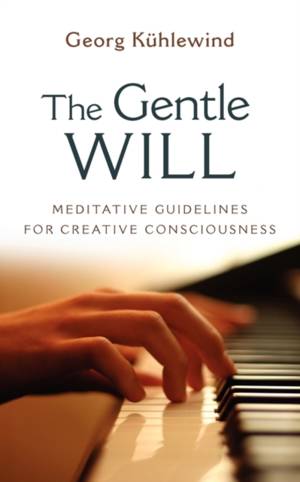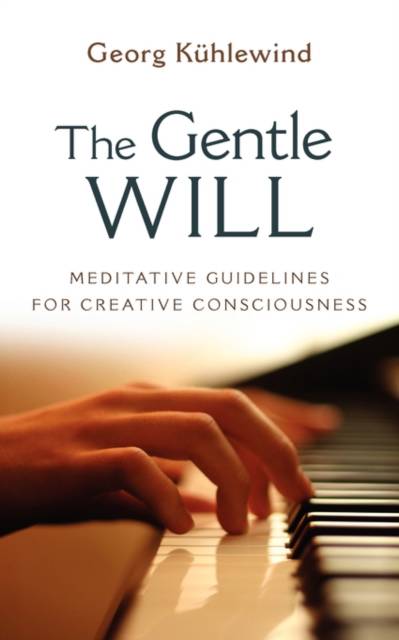
- Retrait gratuit dans votre magasin Club
- 7.000.000 titres dans notre catalogue
- Payer en toute sécurité
- Toujours un magasin près de chez vous
- Retrait gratuit dans votre magasin Club
- 7.000.0000 titres dans notre catalogue
- Payer en toute sécurité
- Toujours un magasin près de chez vous
Description
From what is felt to Feeling
From what is willed to Willing
Every spiritual practice, every exercise of consciousness, all meditation--indeed, every moment of true awareness--we do with the "gentle will," even if we are unaware of it initially and cannot fully activate it yet. In the course of practice, however, the gentle will begins to shine, and we gradually gain the ability to access it in our ordinary, daily activities, allowing our lives to become infinitely richer, meaningful, and creative.
The gentle will is relaxed, receptive, expressive, creative, soft, light, and playful. It is not rigid or cramped. We use the gentle will in artistic activities such as playing a musical instrument, writing a poem, or painting a picture. It is the original will of the human being, the will of the "I." The gentle will is not the determined, useful, goal-oriented, egoistic, working will of Sisyphus, who will never be able to roll his boulder up the mountain. The gentle will is free of me-feeling and egoism. In this way, it differs from the "hard will," which works through egoism.
Today, however, all life is governed by the principle of usefulness, utility, comfort, and efficiency--the hard will of egoism. This approach has brought the world to the brink of catastrophe, regardless of what technocrats say or think about it.
Georg Kühlewind writes in this book that the only hope he sees of avoiding destruction is a change in human consciousness; the "hard will" must become the "gentle will." To this end, he provides exercises through which we may transform the hard will into the gentle will.
Spécifications
Parties prenantes
- Auteur(s) :
- Traducteur(s):
- Editeur:
Contenu
- Nombre de pages :
- 126
- Langue:
- Anglais
Caractéristiques
- EAN:
- 9781584200932
- Date de parution :
- 11-03-11
- Format:
- Livre broché
- Format numérique:
- Trade paperback (VS)
- Dimensions :
- 127 mm x 203 mm
- Poids :
- 145 g

Les avis
Nous publions uniquement les avis qui respectent les conditions requises. Consultez nos conditions pour les avis.






